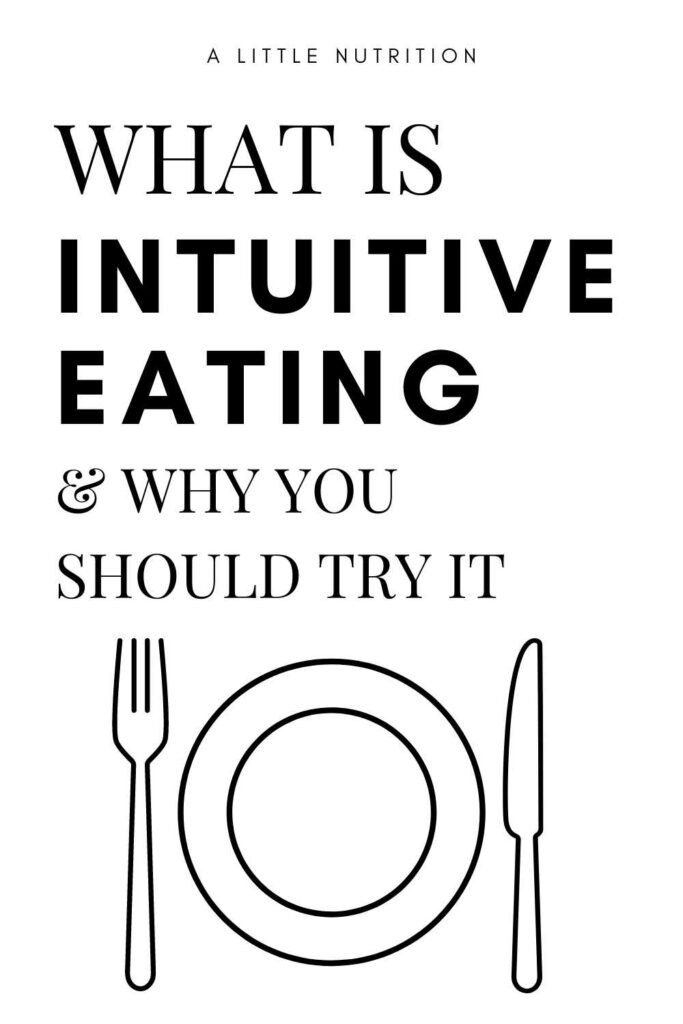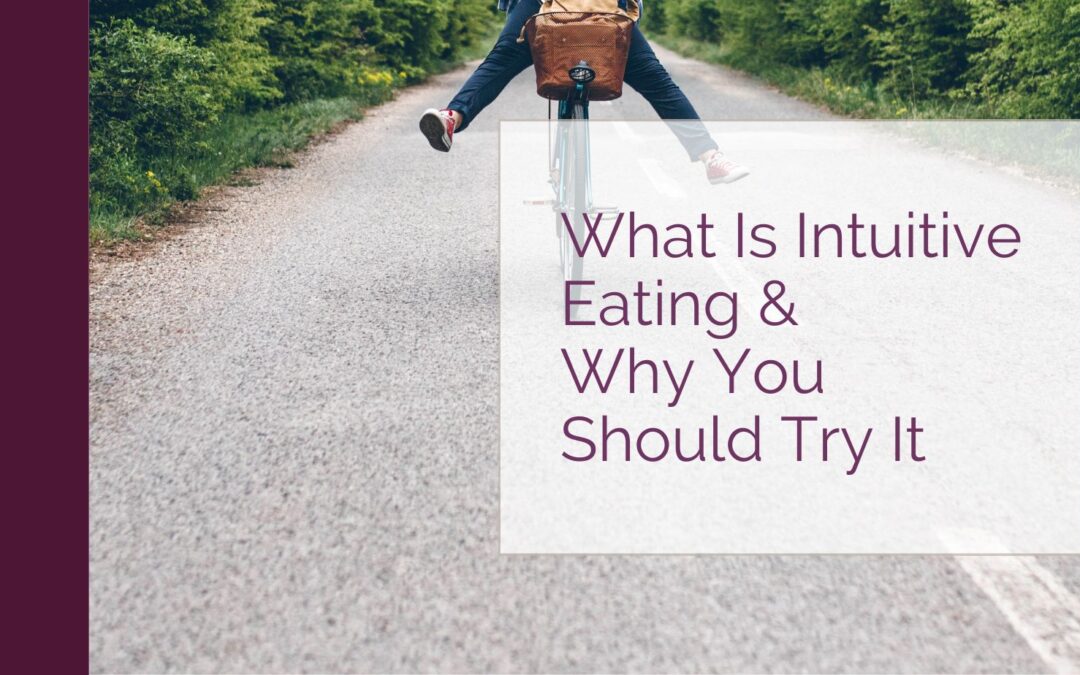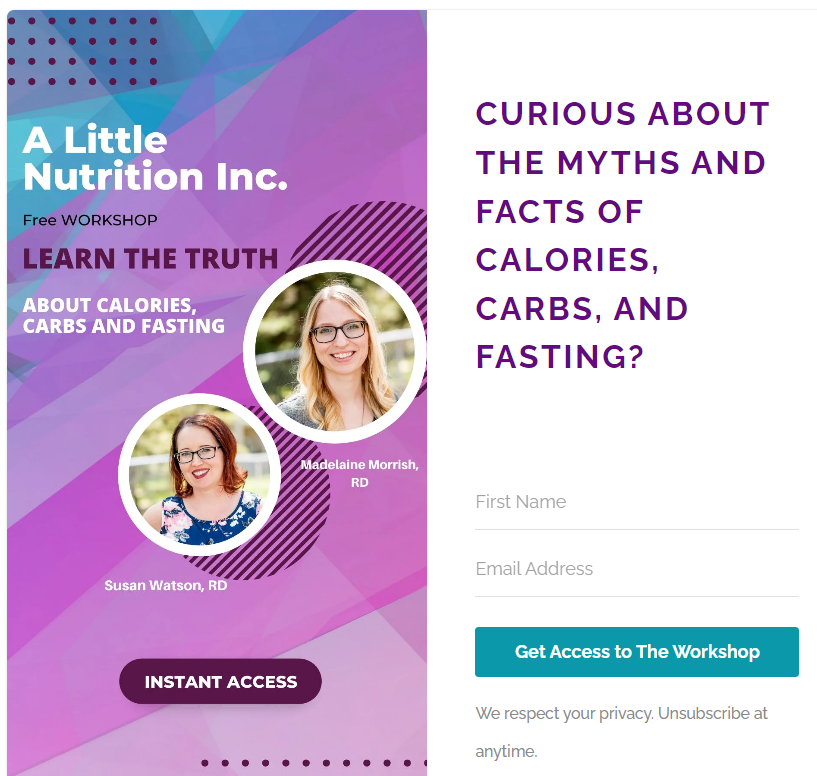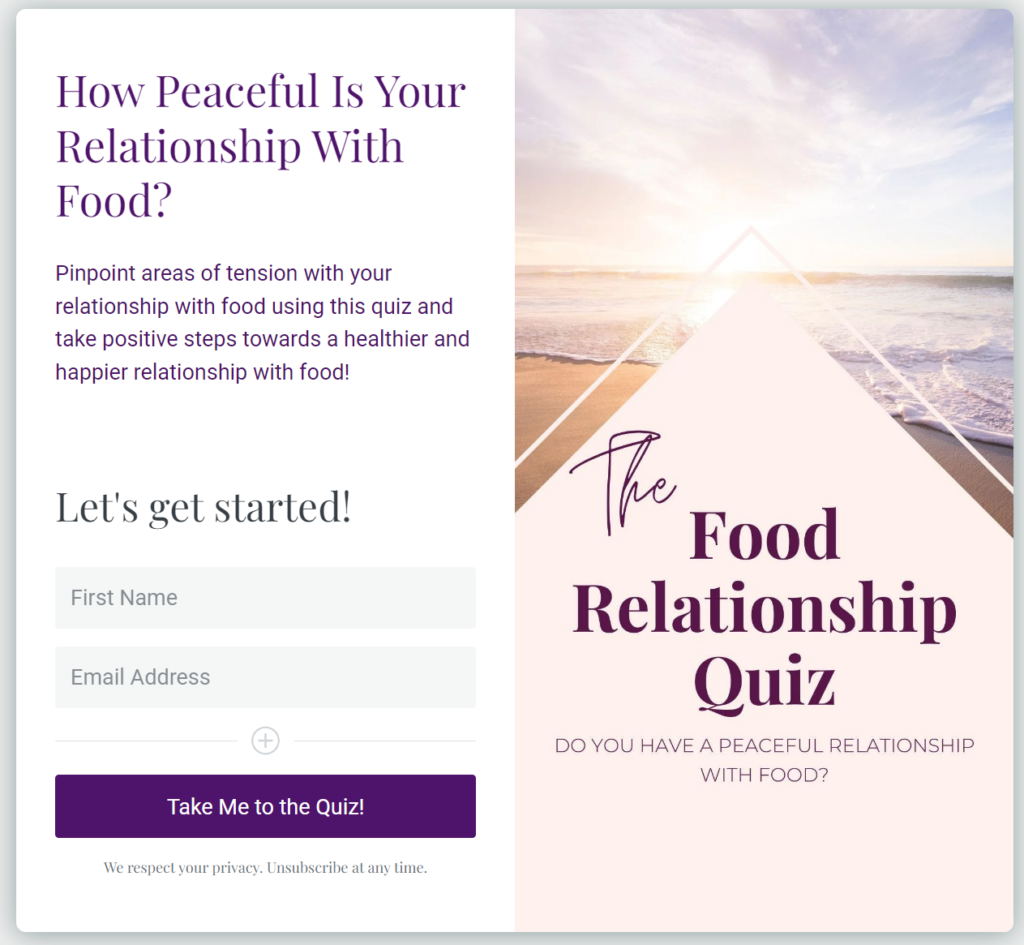You’ve probably heard of intuitive eating, but what is it exactly? At its core, intuitive eating is an approach to eating that encourages folks to tune into their own bodies’ wisdom around hunger, fullness, and satisfaction. The intuitive eating principles encourage individuals to address areas of their relationship with food, movement, and body that may be disconnected due to being exposed to or consuming diet culture messages like “good and bad food,” “earning treat food,” and that your body has to look a certain way to be healthy. Intuitive eating encourages the idea of learning to listen to your body rather than relying on external cues for eating. It’s a way of getting back in touch with your natural hunger and fullness signals.
Eating intuitively is not a diet
It’s much more! It is trusting your body to know what and when to eat rather than following restrictive or harmful diet rules. Intuitive eating is about learning how different foods make you feel, cultivating a positive relationship with food, and working towards an individualized flexible pattern of eating works for you and your lifestyle. It also can be incredibly empowering: by trusting yourself, you can learn to become in tune with your body’s needs and make food choices that satisfy what your body needs… and yes, that might be ice cream or a salad.
However, for some individuals, the intuitive eating approach may not be as helpful for them. For example, some medication lessens the ability to recognize hungry cues, and a time-based eating approach may be more helpful for them. Also, those with a history of an eating disorder where hunger or fullness cues are dulled, intuitive eating stressful or difficult to follow. Ultimately, everyone’s relationship with food is different, and while some may benefit from idea of intuitive eating, others may not.
In this post, we will introduce the concept of intuitive eating, discuss its ten principles, explain the benefits you can gain from intuitive eating counseling, and provide resources for further information.
WHAT IS INTUITIVE EATING?
Intuitive eating is a non-diet approach to nourishing yourself that emphasizes developing a positive relationship with food and your body. The concept was created by two dietitians who wanted to help people move away from dieting culture and find balance in their relationship with food. In their book “Intuitive Eating,” they outline ten principles that guide understanding the concept of intuitive eating and how to practice it.
The 10 Principles
Reject the Diet Mentality:
This principle involves rejecting any thoughts or beliefs that you might have about diets being the best way to reach your health goals or maintain a healthy lifestyle. This includes letting go of negative thoughts about yourself due to dieting or not meeting certain health or weight goals criteria.
Honor Your Hunger:
Listen to your body’s signals when it’s hungry rather than relying on external cues like time or social pressures when deciding when and what to eat. Don’t restrict yourself from eating certain foods because you think they are “unhealthy.” Instead, focus on honoring your cravings for those foods once in a while when you feel like having them.
Make Peace With Food:
Stop labeling certain foods as “good” or “bad,” since this thinking only leads to restriction and guilt associated with indulging in certain foods every once in a while. Allow yourself permission for pleasurable eating experiences without feeling guilty afterward.
Challenge the Food Police:
The Food Police are those voices inside our heads telling us we aren’t allowed to eat certain things because they don’t fit into societal standards around beauty or healthiness – challenge these negative thoughts by reframing them into more positive thinking patterns!
Discover the Satisfaction Factor:
Finding satisfaction involves eating foods, meals and snacks that are pleasurable and feel good in your body most of the time. When you are unsatisfied with your meals you can be left wanting more which can lead to food preoccupation (thinking about food all the time). Eating satisfying meals and snacks turn off food cravings, leave you feeling content and allow you to do other things with your time (like focusing on a work meeting rather than worrying about the chocolate bar in the vending machine calling to you).
Feel Your Fullness:
Feeling your fullness is about learning how to tune into your body, and trust that your body will let you know that you are no longer hungry. It involves allowing yourself to eat the foods you enjoy and that your body will tell you when you have had enough.
Cope with Your Emotions with Kindness:
Many of us turn to food for comfort when we’re feeling down. And while there’s nothing wrong with doing this, it’s important to have other coping strategies in our toolboxes. Coping with your emotions with kindness is all about being kind to yourself and listening to what your body really needs, often emotional hunger isn’t satisfied with food. Overeating or eating less nourishing foods is only a temporary solution, and can make you feel worse in the long run. Instead, try to take a step back and understand what you’re feeling and what you need. Are you feeling stressed? Need support? Lacking self-care? Once you know what you need, it’ll be easier to take care of yourself in a way that will last.
Respect Your Body:
It’s time to start respecting our bodies for their unique genetic difference, instead of pushing ourselves to obtain an “ideal” that is pushed on society through diet culture. We must recognize and accept diversity in body shapes and sizes and embrace what makes us individually unique. It can be hard when we compare our bodies to those around us, however by embracing intuitive eating principles and discovering positive coping skills that work for us, we can create an environment of acceptance that will shift our views surrounding body image.
Movement – Feel the Difference:
If you focus on how good it feels to move your body, working out becomes much more enjoyable. Find something that makes moving fun, such as dancing around the house instead of going outside every day if the weather isn’t ideal. Moving should be joyful and not feel like a chore. By seeking out joyful movement, we can make working out feel good and something to look forward to!
Honor Your Health – Gentle Nutrition:
Eating healthy doesn’t have to mean being perfect all the time and really there is no such thing as “perfect eating”. Gentle nutrition is all about making food choices that honor your health and your food preferences. This means that if you want an occasional treat, you can have one! Deprivation is not part of the equation. Allow yourself some flexibility for fun foods and indulgences – it’s all about having balance!
Watch Discover the 10 principles of Intuitive Eating
INTUITIVE EATING NUTRITION COACHING
Intuitive Eating Nutrition Coaching helps people make peace with food and their body. Using evidence-based nutrition principles, a registered dietitian or nutritionist can guide the individual through their journey of re-building their relationship with food. During nutrition sessions, the emphasis is on helping them move away from a diet mentality and understanding how to eat in alignment with their own wants and needs.
Eating intuitively teaches individuals to become more mindful of hunger and fullness cues, enjoy all types of foods without guilt or shame, shift focus away from weight loss, and honor personal health goals. Practicing intuitive eating can have many positive outcomes, including improved digestion, better sleep, reduced anxiety and stress levels around food, increased self-confidence, improved overall well-being, and enhanced body acceptance. The goal of intuitive eating nutrition coaching is to help the individual reach physical and mental health goals by becoming a healthier version of themselves in both the mind and body.
HOW MANY SESSIONS DO I NEED, AND HOW LONG WILL THIS JOURNEY TAKE?
Everyone’s journey will be different, and the length of time will depend on how much “dieting trauma” you have suffered from over the years. The more diets you have been on the more “undoing” you will need to address. Change doesn’t happen overnight, and it will depend on how many personal barriers your have to overcome to make peace with food. It can take time to restore the natural intuitive eater inside you and learn to trust your body and inner wisdom.
HOW MUCH TIME DO I NEED TO SET ASIDE EACH WEEK TO WORK ON INTUITIVE EATING?
If you have dieted before, you will find that learning to implement the principles of intuitive eating takes less time than when you were endlessly recording and counting calories. You will gain time back because you won’t be obsessing about food all the time. You will be given a small activity to work on after each appointment. It is up to you how much time you take to practice and implement the activities.
Some weeks it may seem like an easy task to do, and some weeks it might be harder. Intuitive eating is a new skill that you will have to learn to develop and work at practicing it. We will offer you suggestions on how to implement the principles in a way that will integrate into your lifestyle. Overall, you will be spending less time working on intuitive eating than when you were following rigid diet plans and rules.
Needing additional support?
Sometimes when our clients embark on working on their relationship with food we uncover emotional underpinnings that dietitians are not equipped to help process. That is why we have a team of therapists on staff to help when needed. Our team of psychotherapists and social workers can help you with the following mental health areas:
- ADHD
- Addiction
- Anxiety
- Bipolar Disorder
- Depression
- Disordered eating, health behvaviour change
- Divorce
- Family Conflict
- Grief
- Life Transitions
- Obsessive-Compulsive (OCD)
- Parenting
- Peer Relationships
- Self Esteem
- Self-Harming
- Stress
ARE MY APPOINTMENTS COVERED BY MANITOBA HEALTH OR EXTENDED MEDICAL HEALTH INSURANCE?
Manitoba health does not cover private Registered Dietitian services. However, if you have extended medical insurance through your employer, you may have coverage for Registered Dietitian and Therapist services. If you are uncertain about your coverage, you can call our office 1-204-515-7466 and we can look into it for you. In addition, if your plan allows for direct billing, we would be happy to directly bill your appointment and keep the out-of-pocket expense as low as possible.
HOW DO I BOOK AN APPOINTMENT WITH A REGISTERED DIETITIAN?
To book an appointment with one of our Registered Dietitians or therapists, you can:
Phone: 204-515-7466
Email: admin@alittlenutrition.com
Book online: https://alittlenutrition.janeapp.com/
Pin Me For Later







